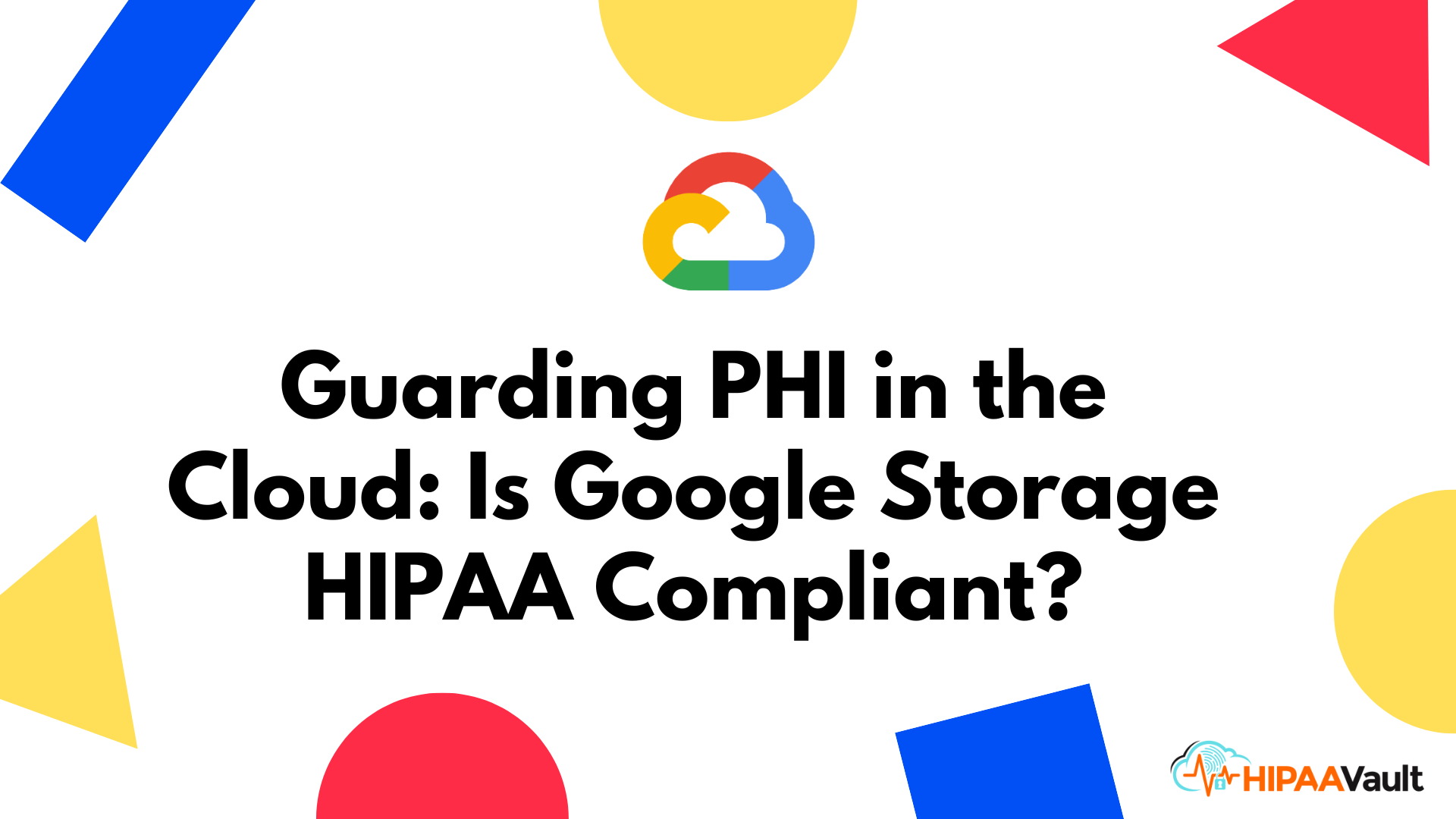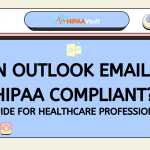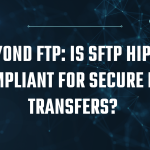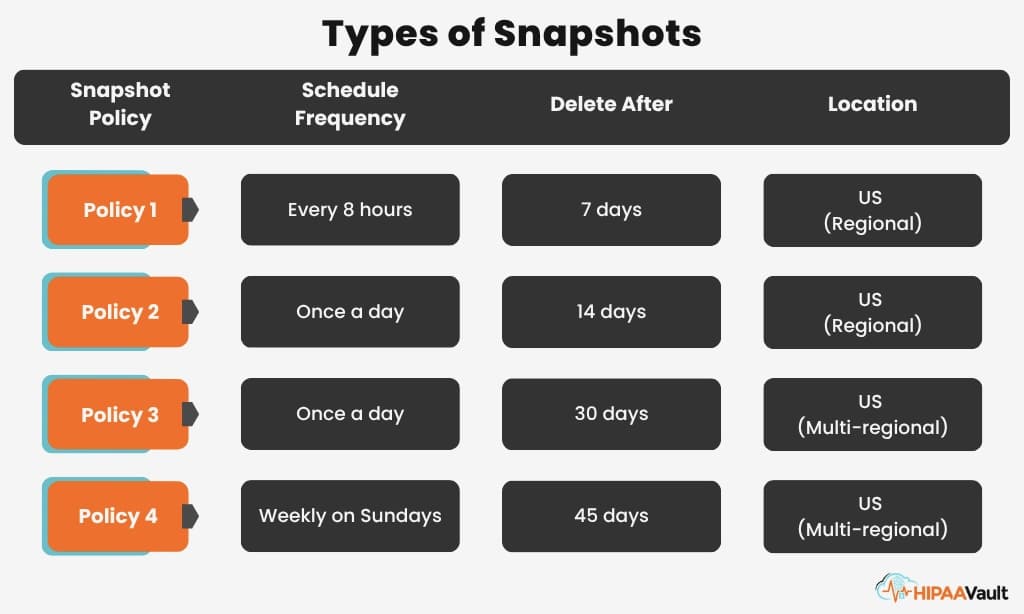Google Cloud Storage offers robust, scalable object storage used by enterprises around the world. Healthcare organizations eyeing the cloud often wonder: is Google storage HIPAA compliant? Storing Protected Health Information (PHI) off-premises demands strict technical and administrative controls. This guide explains Google’s HIPAA eligibility, necessary configurations, and best practices for safeguarding PHI in Google Storage.
Is Google storage HIPAA compliant?
By default, no cloud service is inherently HIPAA compliant. Compliance depends on both the provider’s offerings and how you configure them. Google Cloud Platform (GCP) will sign a Business Associate Agreement (BAA) for eligible services—including Cloud Storage—when you request it. Under that BAA, Google commits to meeting HIPAA’s Security Rule requirements for encryption, access control, and logging. With the BAA in place and proper configurations applied, Google Storage can form part of a HIPAA-compliant solution (Cloud Google, HIPAA Compliance).
Google’s BAA and HIPAA Eligibility
Google’s HIPAA Program covers core storage and compute services under a BAA. To initiate, you must enroll through the Google Cloud Console and review the agreement. Services covered include Cloud Storage, Compute Engine, and BigQuery, among others. Once signed, all PHI stored, processed, or transmitted by these services falls under Google’s contractual obligation to protect it. Without a signed BAA, any PHI in your Google Storage buckets would violate HIPAA’s Privacy and Security Rules (Cloud Google, HIPAA Compliance).
Technical Safeguards in Google Storage
Google Storage encrypts all data at rest using AES-256 by default; keys are managed by Google unless you opt for Customer-Managed Encryption Keys (CMEK). CMEK lets you control and rotate your own keys stored in Cloud Key Management Service (KMS), adding another layer of compliance assurance. In transit, data moves over HTTPS endpoints secured by TLS 1.2 or higher. Identity and Access Management (IAM) policies enforce least-privilege access, requiring explicit roles—such as roles/storage.objectViewer—to read objects. Uniform bucket-level access prevents legacy ACLs from bypassing IAM rules, ensuring consistent security (Google Cloud Storage Documentation).
Administrative & Policy Controls
Beyond encryption and IAM, HIPAA mandates administrative safeguards. You must conduct a risk assessment addressing potential vulnerabilities in your cloud setup. Enable Cloud Audit Logging to capture all admin activities, data access events, and policy changes in Storage Logs. Retain these logs for a minimum of six years to meet HIPAA’s record retention standards. Establish data retention and deletion policies using Object Lifecycle Management to automatically purge PHI when it is no longer needed, reducing exposure risk (HHS Security Rule).
Managed Enterprise Hosting on Google Cloud Platform
Leverage the power of Google Cloud with guaranteed compliance. We manage Kubernetes, APIs, and databases for high-scale healthcare apps.
Learn MoreConfiguring Google Storage for HIPAA
First, enable CMEK in your bucket settings and link to a key ring you control in Cloud KMS. Next, activate Uniform Bucket-Level Access to enforce IAM policies uniformly. Require all clients to connect via HTTPS by disabling public or HTTP endpoints. Configure IAM roles generously—grant only the permissions necessary for each user or service account. Finally, turn on Data Access audit logs for Storage to record every read, write, and configuration event. Review logs regularly in Cloud Logging and forward them to a SIEM tool for real-time monitoring and alerting.
Common Pitfalls & Best Practices
A frequent mistake is leaving buckets publicly accessible or misconfigured ACLs that expose objects inadvertently. Always review bucket permissions after creation. Relying solely on Google-managed encryption keys can satisfy HIPAA, but using CMEK demonstrates greater control and auditability. Forgetting to enable audit logs or retaining them for less than six years undermines compliance. Finally, neglecting routine risk assessments and policy reviews allows new vulnerabilities to creep in. Schedule quarterly policy audits and update your risk register accordingly.
Alternatives & Complementary Solutions
For organizations seeking turnkey compliance, HIPAA Vault offers managed, HIPAA-ready cloud environments that wrap Google Storage with additional controls and expert support. Our solution includes pre-configured CMEK, automated audit log monitoring, and policy enforcement, backed by a signed BAA covering all services. We also support hybrid strategies—using Google Storage for bulk archival and a private, encrypted file solution for active PHI workflows—ensuring performance and compliance.
Conclusion & Next Steps
Google Cloud Storage can be part of a HIPAA-compliant infrastructure when you sign Google’s BAA and apply required configurations: CMEK for key management, uniform access controls, TLS-only endpoints, and comprehensive audit logging. Coupled with administrative policies and regular risk assessments, you’ll meet HIPAA’s rigorous standards.
Ready to secure your PHI in the cloud?
Partner with HIPAA Vault for turnkey, HIPAA-compliant storage and management.
https://www.hipaavault.com/hipaa-compliant-cloud-hosting/








